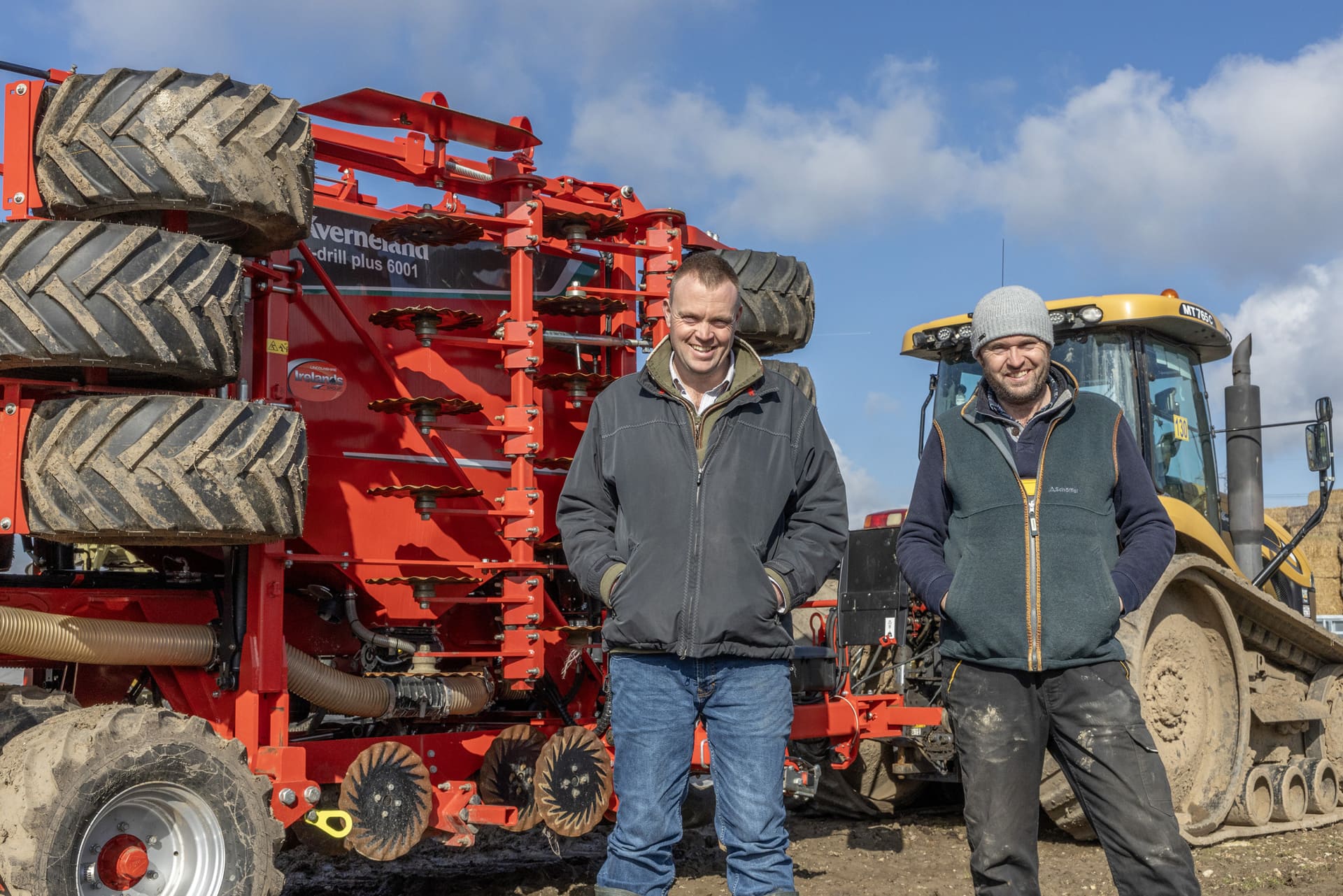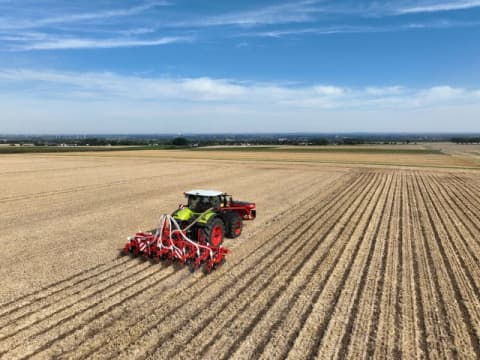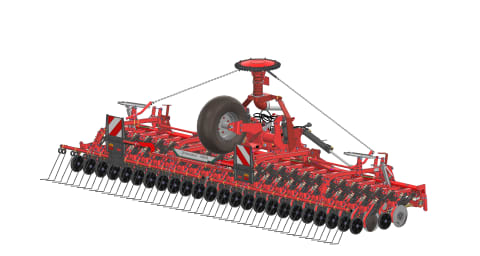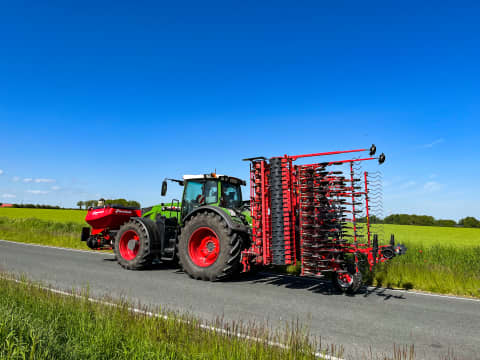With 1,000 acres of combinable crops and the ability to house 1,000 head of cattle on its beef finishing unit, SC & EA Gadsby aims to grow everything it feeds at Low Marsh Meadow, Outwell near Wisbech.
Run by husband and wife team Sam and Emily Gadsby, the rotation comprises winter wheat, spring barley, spring beans, grass, lucerne and grain maize – the latter accounting for around 300 acres.
“Our ultimate goal is to direct drill and it starts with moving less and less soil, so we can have a nigh-on permanent stale seedbed and get black grass under control,” explains John Gadsby, who manages the arable operation for his brother Sam, alongside his role as an agricultural consultant for ADAS.
The exception is after grain maize, where ground is ploughed and then drilled with spring crops, spreading the workload.
“We’re looking to improve soil health, make fewer passes and lower establishment costs,” he adds. “By reducing the amount of soil we move for cereals, we can also manage black grass incidence.”
Alongside its in-house farming activities, Sam and Emily Gadsby run a team of 10 square balers supported by seven Heath Superchasers through harvest, producing 80,000 bales/year. It means autumn cultivations rarely start before September, making it harder to employ traditional stale seedbed techniques.
“It’s why we looked at the u-drill complete with MD disc and there’s a lot of potential in the system,” explains John. “If we can limit the amount of soil we move, moisture retention should be better and we can adopt targeted sub-soiling rather than recreational sub-soiling across our predominantly silty and silty clay loams.”
A trusted, long-term relationship with Kverneland dealer Irelands Farm Machinery and experience of an Optima drill and Siloking feeder wagon, the Gadsbys tried various processes of crop establishment before having a demonstration of a 6m u-drill with MD discs during the autumn of 2023 to establish winter wheat.
“We really like those straight discs up front, which do a great job of cutting a narrow strip of soil, into which seed is placed and firmed up by the press wheels. Everything else between the 16.6cm rows is untouched,” adds John.
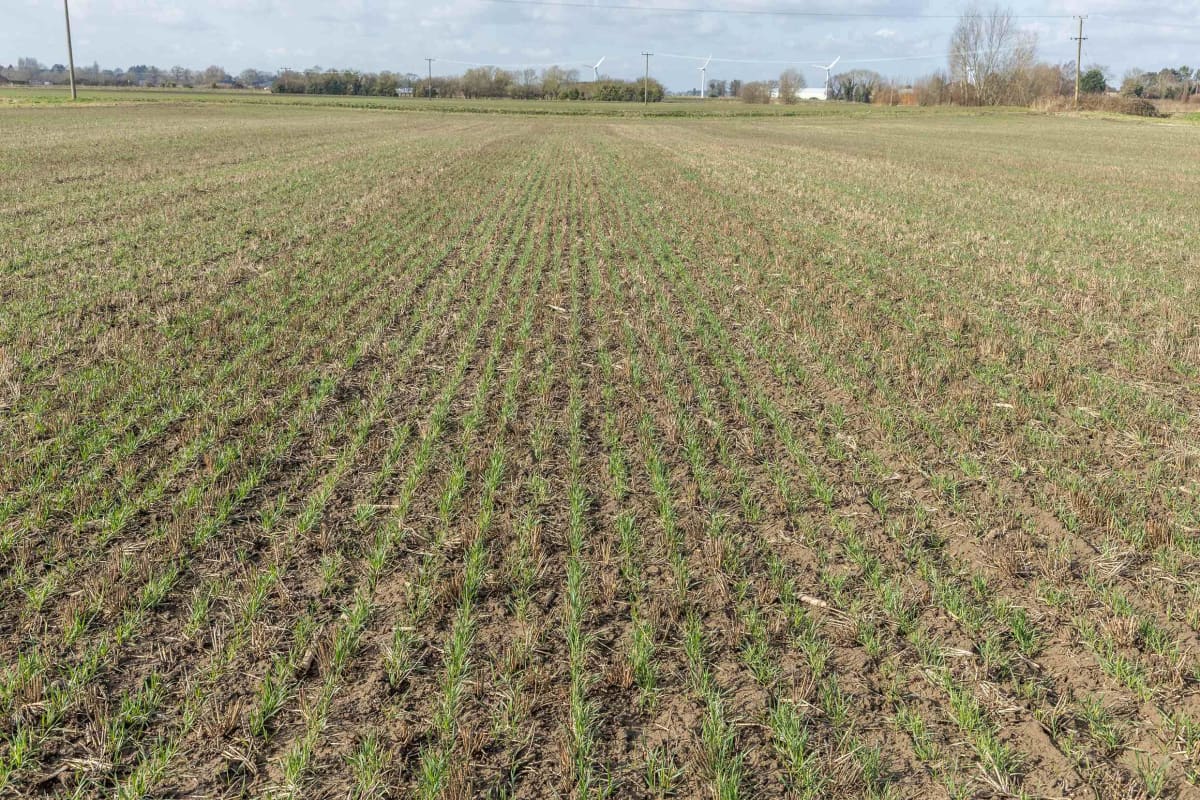
“The germination and yield results were so good that we then hired the drill to sow autumn 2024’s crops, and our spring barley, before eventually buying a new drill with the help of a grant,” he says. “We bought a Plus version, to give us grain and fertiliser capability.”
He says that the farm is still playing about with settings, and is keen to run the front discs as deep as possible, to encourage better root growth.
“With phosphate put down with winter wheat and beans, and DAP put in with spring barley, we’re on the right path,” he says.
Output is around 100 acres/day, with the drill pulled by either the farm’s 300hp Fendt 828 or a hired in Challenger from specialist Ian Houlgrave.
“The 6m working width is ideal for our field sizes and local roads, and there’s enough capacity in the system that we don’t have to rush about to achieve 100 acres/day,” explains Sam Gadsby. “It’s a system that helps with time management at what is a very busy time of year, along with many other benefits from using the minimum disturbance discs.”
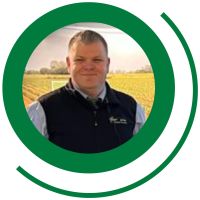
Want to speak to a specialist?
E-Mail Simon Wills, Kverneland seeding specialist: info-uksales@kvernelandgroup.com

